detail profile brigitte lindenberg
Peran Yang Di Mainkan Brigitte Lindenberg
 The sixpart film series tells in...
The sixpart film series tells in...Berühmte Ärzte der Charité: Der kleine Doktor 1981
The six-part film series tells in impressive stages of the work of important doctors at the internationally renowned Berlin hospital in its medical and contemporary historical scope. The period spans the beginning of the 19th century to the Second World War, bringing the viewer close to the work of great medical professionals: Robert Koch, Ferdinand Sauerbruch, Rudolf Virchow and others. Film overview: • "The man from Jena" (Christoph Wilhelm Hufeland). • "The Little Doctor" (Rudolf Virchow) • "Krisis" (Robert Koch). • "Doctor in Uniform" (Theodor Brugsch and Georg Friedrich Nicolai). • "The seemingly impossible" (Walter Stoeckel) • "Die dunklen Jahre"(Ferdinand Sauerbruch)
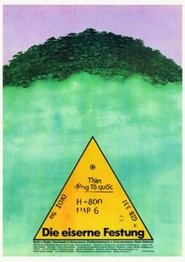 Weeks after the victory in Vietnam...
Weeks after the victory in Vietnam...The Iron Fortress 1977
Weeks after the victory in Vietnam, first pictures of a new humanity are captured: old and sick people preparing for their future, children on their way to school.
 His passion for hunting almost spells...
His passion for hunting almost spells...Toggenburger Bock 1975
His passion for hunting almost spells doom for the sales manager of a GDR convenience store: his ambition to shoot a big buck just before the start of the closed season leads him to fall for a joke played by his son. He has tied horns to a prize-winning breeding goat, leading the hunter on the wrong track. While he tries to cover up the incident, there is a great deal of excitement in the village; resentment and schadenfreude arise, intrigues are played out and village gossip makes the rounds.
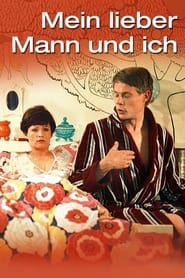 For her husband who has become...
For her husband who has become...Mein lieber Mann und ich 1975
For her husband, who has become famous as an actor, Angelika is the go-to girl. For years, she stands in his shadow. The only things they do together are premiere parties and receptions. Angelika, who is becoming increasingly frustrated, finally wants a satisfying occupation with which she can gain recognition. But this is where the problems really begin for the couple.
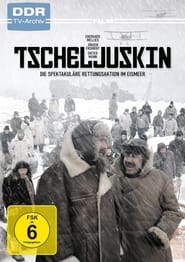 In the 1930s the Soviet ship...
In the 1930s the Soviet ship...Tscheljuskin 1970
In the 1930s, the Soviet ship "Chelyuskin" embarked on an expedition to the Northern Ocean. But soon there is an accident in the ice and the team can save themselves on an ice floe. Two months, the over one hundred people have to persevere there until rescue from the air finally approaches.
 A dead body is found in...
A dead body is found in...The Boss Will Be Here at Noon 1968
A dead body is found in a burning car on the Berlin-Leipzig highway. The police investigate: Murder. Objects found in the car point to gold smuggling. At the funeral of the murdered man, his circle of acquaintances is scrutinized. They are all suspects. The trail leads detective Lindner to a bar.
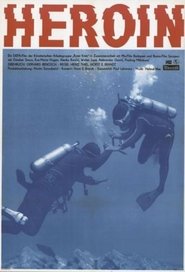 This East German movie was coproduced...
This East German movie was coproduced...Heroin 1968
This East German movie was co-produced with studios in Hungary and Yugoslavia, with many interesting location shots (border checkpoint to West Berlin, the Gellert bath in Budapest, and more). The plot is about French drug dealers, who obtain heroin somewhere in the Middle East, and smuggle it in several steps to East Berlin, and from there to France (or so it appears), killing when necessary. The hero is an officer of East German customs, who with detective work, some masquerade, and occasional violent action ultimately unravels the whole network, of course with the support of the local customs departments.
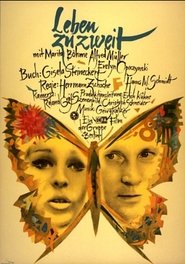 Karin who is in her midthirties...
Karin who is in her midthirties...Leben zu zweit 1968
Karin, who is in her mid-thirties, works as registrar but has been divorced for several years. Together with her 16-year old daughter Nora, she leads a happy and independent life. Then, she finds a new partner in the mathematician Peter, but does not tell her daughter about him. When Peter proposes marriage, Karin always comes up with new excuses why such a step is still too early for her. She mainly fears that Nora would not be able to cope with another marriage of her mother. But when Peter cannot be dissuaded anymore by her excuses and finally wants to marry her, Karin comes up with a bizarre plan.
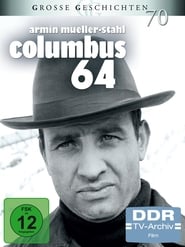 Georg Brecher journalist and casual writer...
Georg Brecher journalist and casual writer...Columbus 64 1966
Georg Brecher, journalist and casual writer, leads a report into the uranium mining of bismuth. Under the impression of hard work underground and the encounter with the mates, Brecher rethinks his previous life. Ulrich Thein's film was created in the context of cultural political balding after the 11th Plenum of the Central Committee of the SED in December 1965, which meant a clear turning point in the youth and cultural policy of the GDR: numerous films, plays, books and music groups banned. The filming of "Columbus 64" also had to be interrupted and it took months for Thein to be let back to the film. Thein's arguments with his film to show the "revolutionary society development" in the GDR did not help, because after completion, his work fell victim to censorship: it was shortened, re-synchronised and offered after a unique broadcast in the GDR.
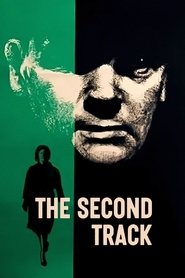 In this German drama Brock a...
In this German drama Brock a...The Second Track 1962
In this German drama, Brock, a railroad inspector, witnesses a robbery at a train depot. He recognizes the thief, but turning the man in would mean acknowledging he knows him, thus revealing his own complicity with the Nazi war machine. When Brock’s daughter and her boyfriend begin to question him about the incident, will the secret he’s kept for nearly 20 years finally be exposed?
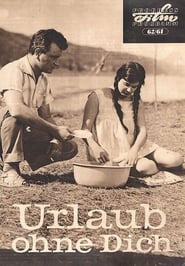 Hannes comes forward with a suggestion...
Hannes comes forward with a suggestion...Urlaub ohne dich 1961
Hannes comes forward with a suggestion on how to make his brigade more efficient. Due to his success, he and all of his colleagues are granted a special leave. They decide to spend their free time in a holiday home. Hannes, however, does not join them. Instead, he pretends that he has to help his wife Irma with the installation of a machine for the agricultural cooperative. While Irma thinks that he spends his holiday with the brigade, Hannes goes on a road trip with the young and pretty Monika who has no idea that he is married.
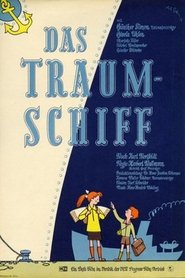 The two halforphans Reni and Rolf...
The two halforphans Reni and Rolf...Das Traumschiff 1956
The two half-orphans Reni and Rolf are 13 and 10 years old and they live with their grandmother in Berlin. Their father has died during the war, their mother works at a Baltic Sea port. Here she meets a captain who wants to marry her. When their mother tells them about the planned wedding, Reni and Rolf are reluctant to meet the captain.
 This film is set in a...
This film is set in a...Der Teufel vom Mühlenberg 1955
This film is set in a medieval mill town in the Harz mountains. The greedy and brutal millman and his accomplices, the castle steward and the mayor, set fire to a forest mill that the farmers used for processing their grain. Without their mill, the farmers must now rely on the millman's services. When the farmhand Anna uncovers the millman’s crimes, he swiftly detains her and a young miller, Jörg. The forest spirits have a different plan, however, and they free the young couple with the charge to rebuild the ruined forest mill and turn things around for the villagers.

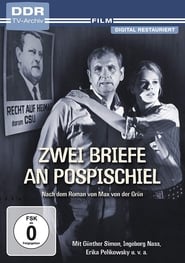 East German television film
East German television film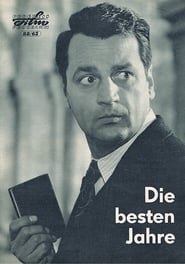 In 1945 Ernst Machner returns home from...
In 1945 Ernst Machner returns home from...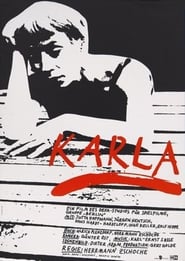 An idealistic teacher is shocked to...
An idealistic teacher is shocked to...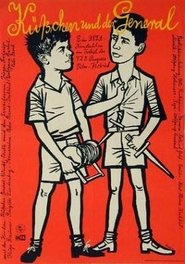 Film by Wolfgang Bartsch
Film by Wolfgang Bartsch